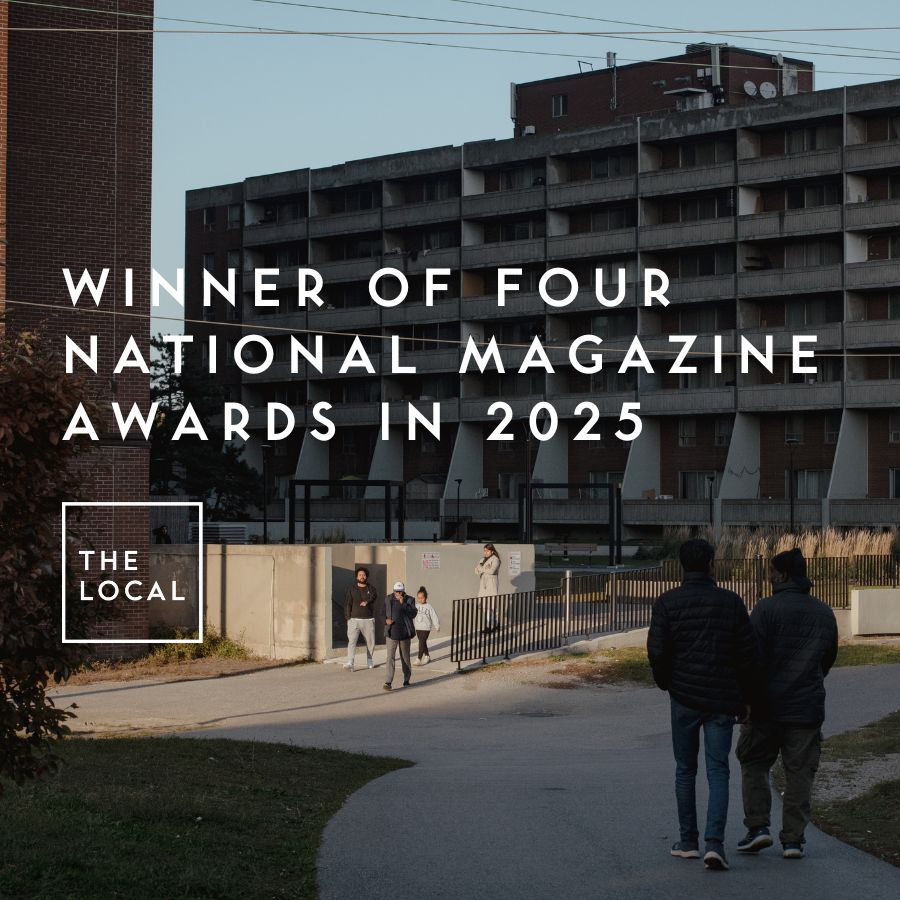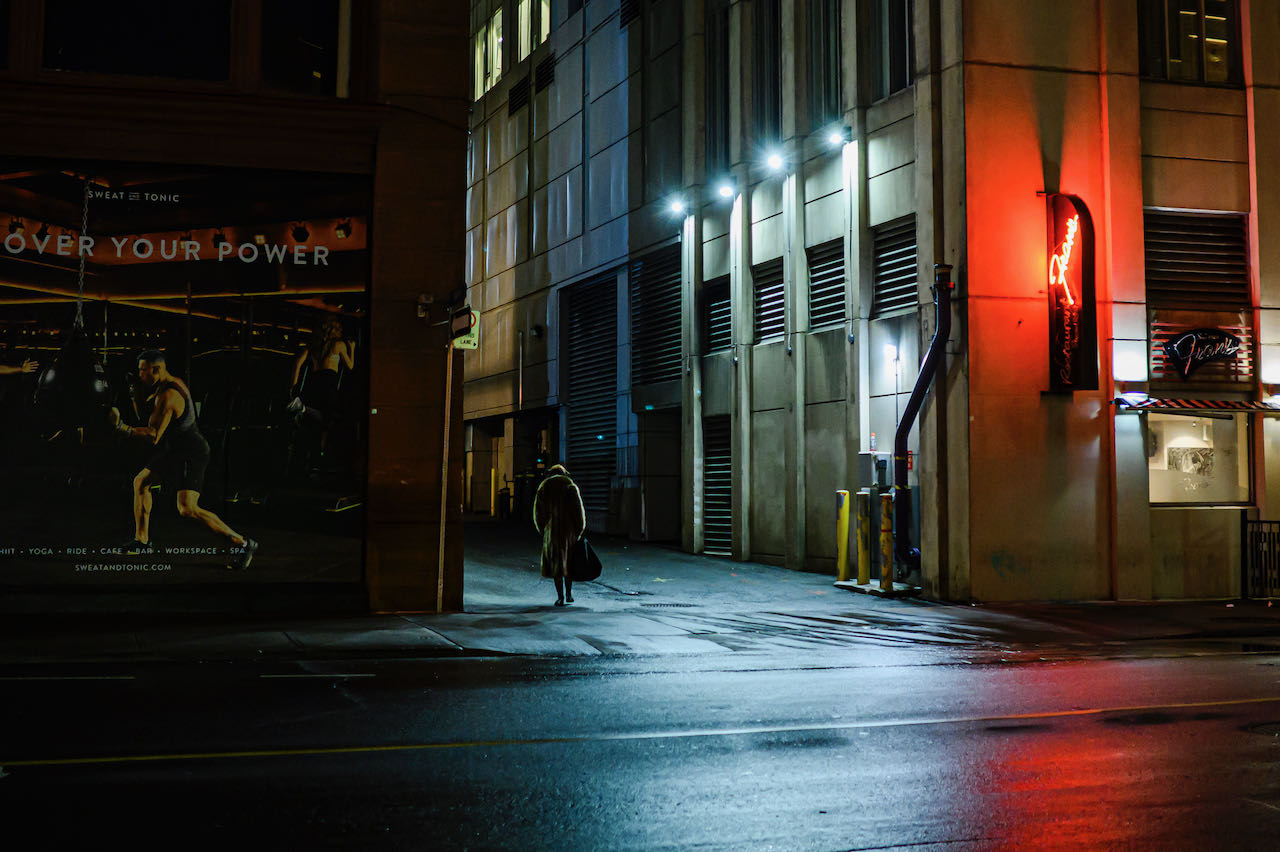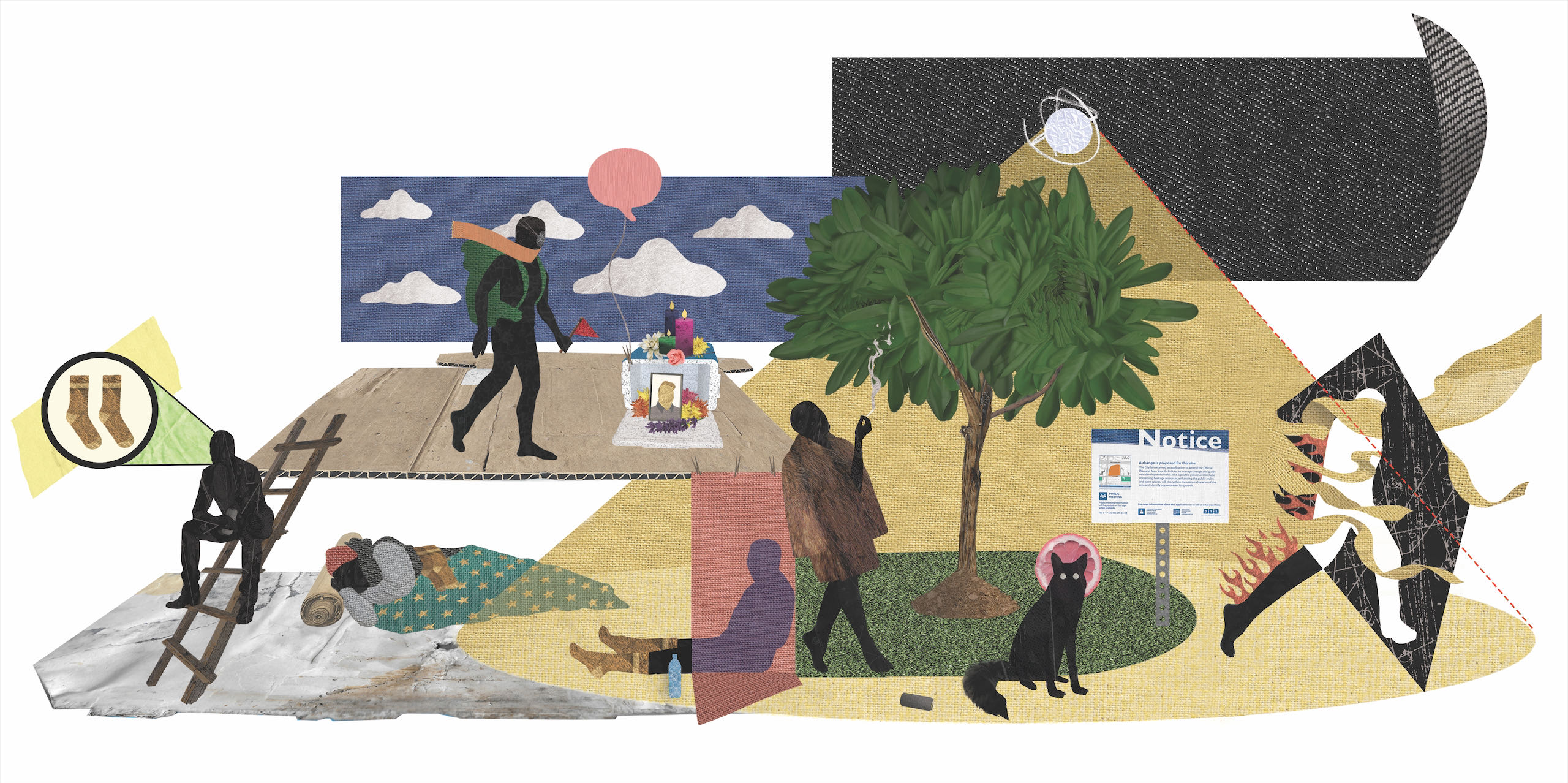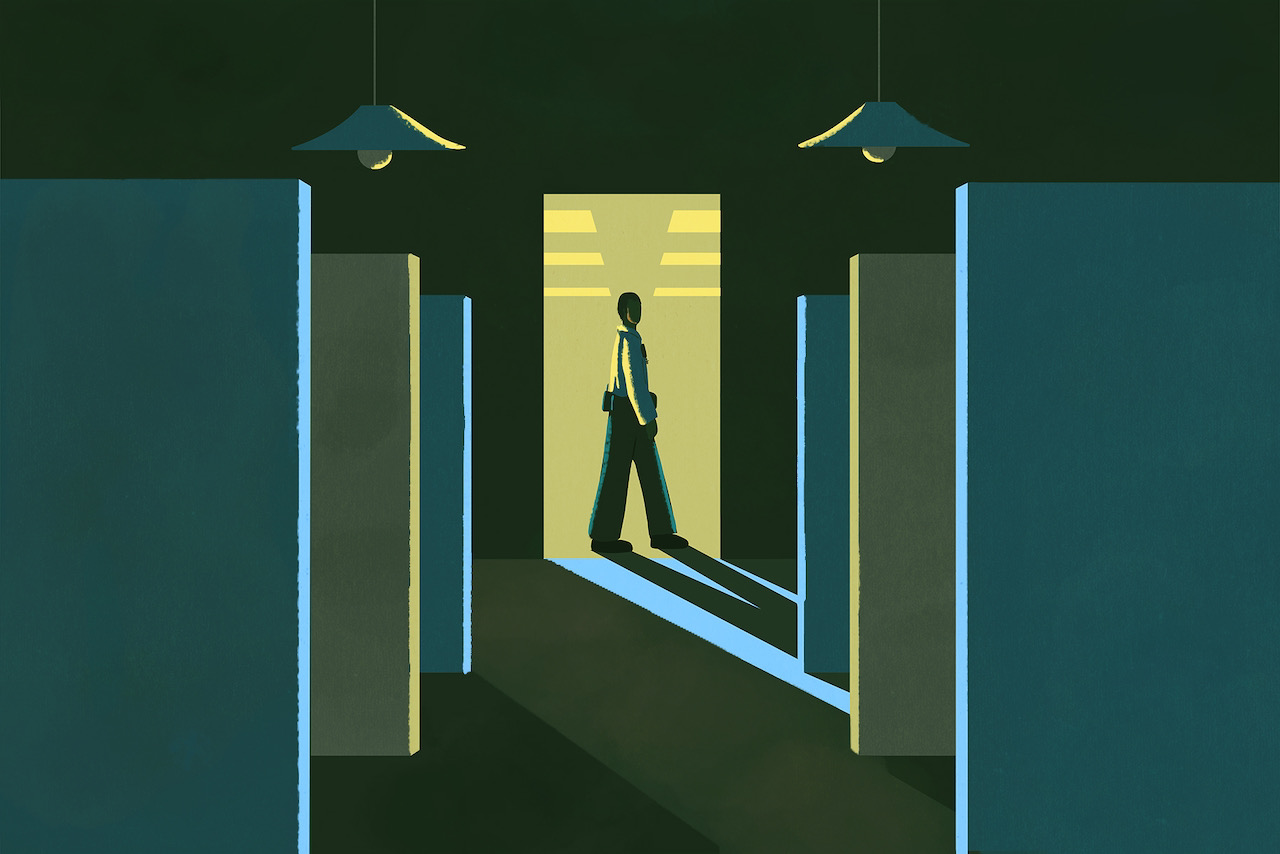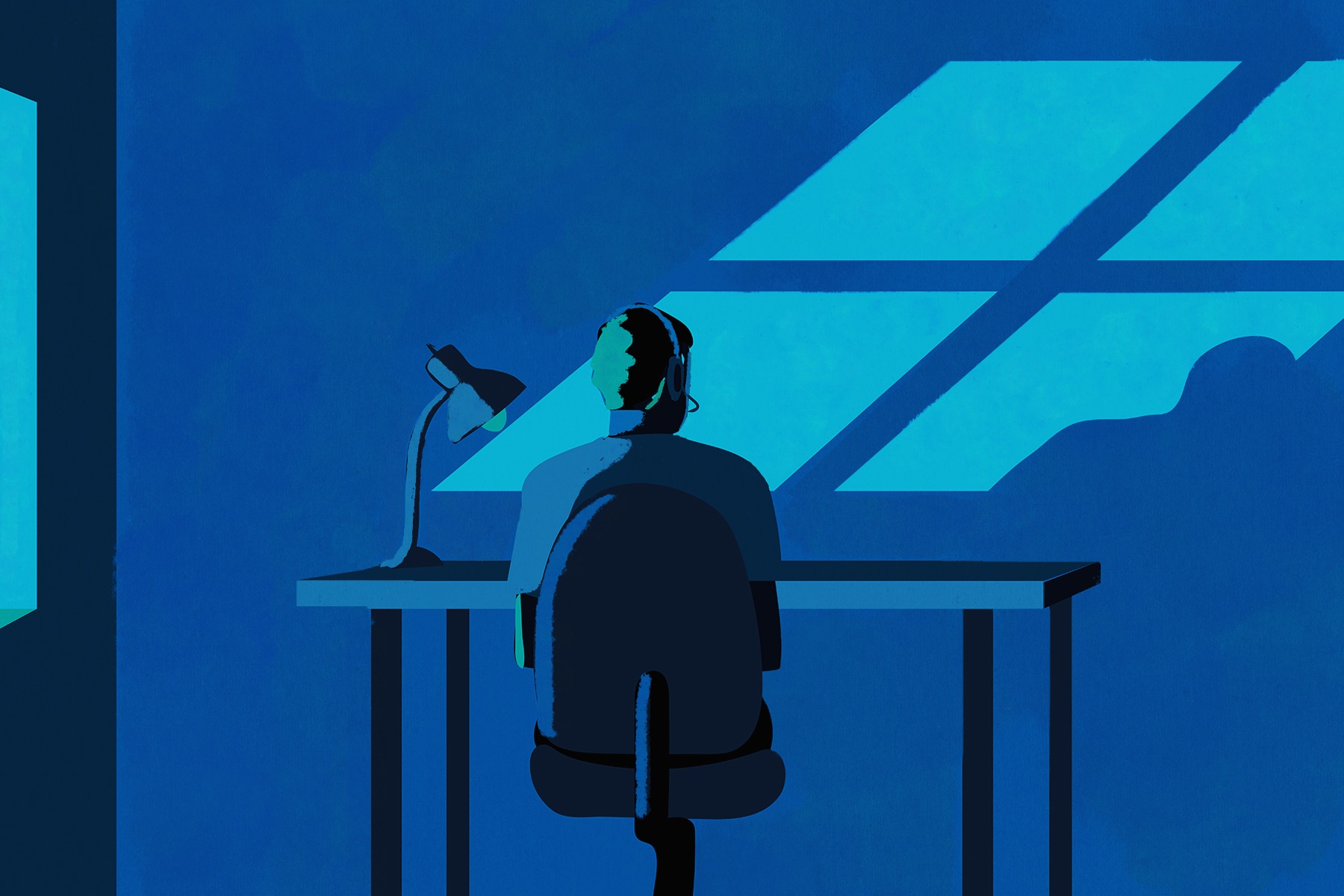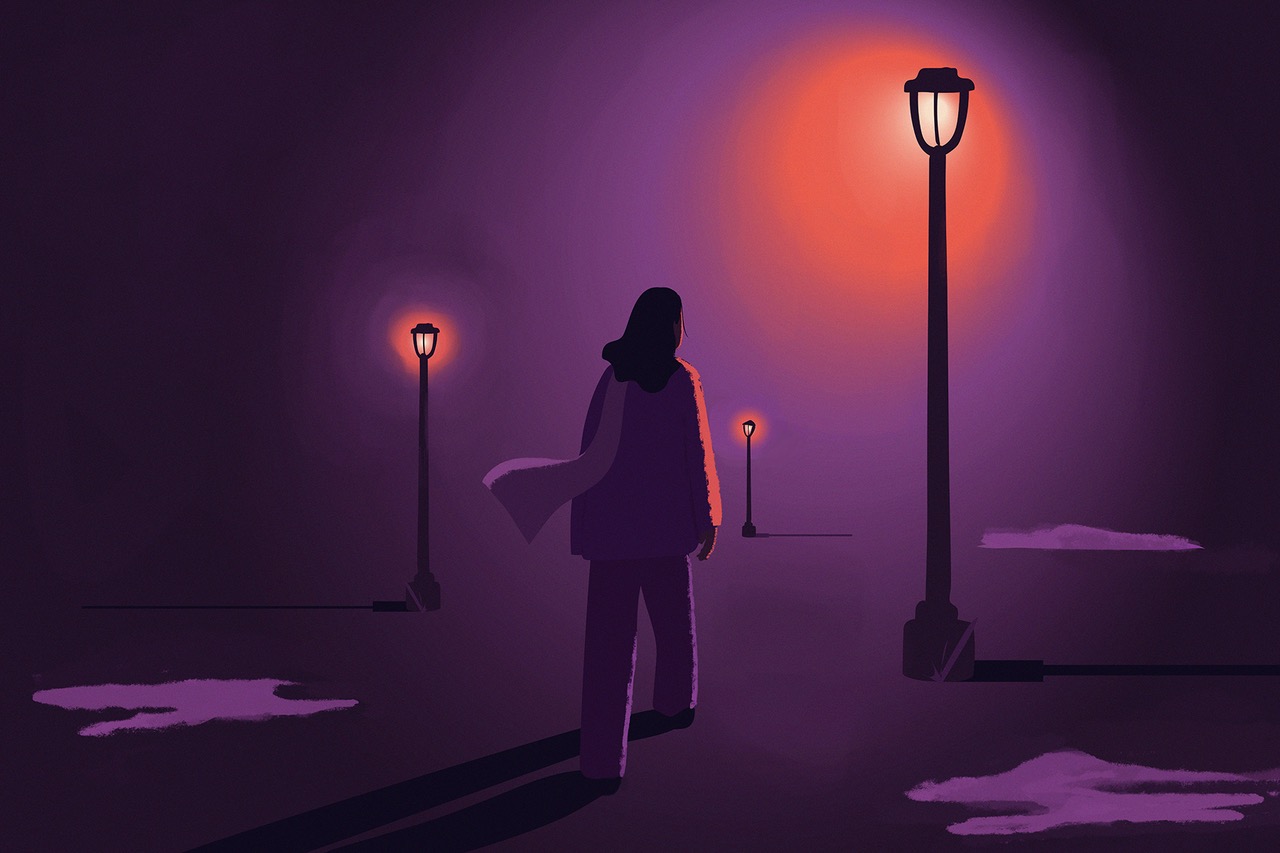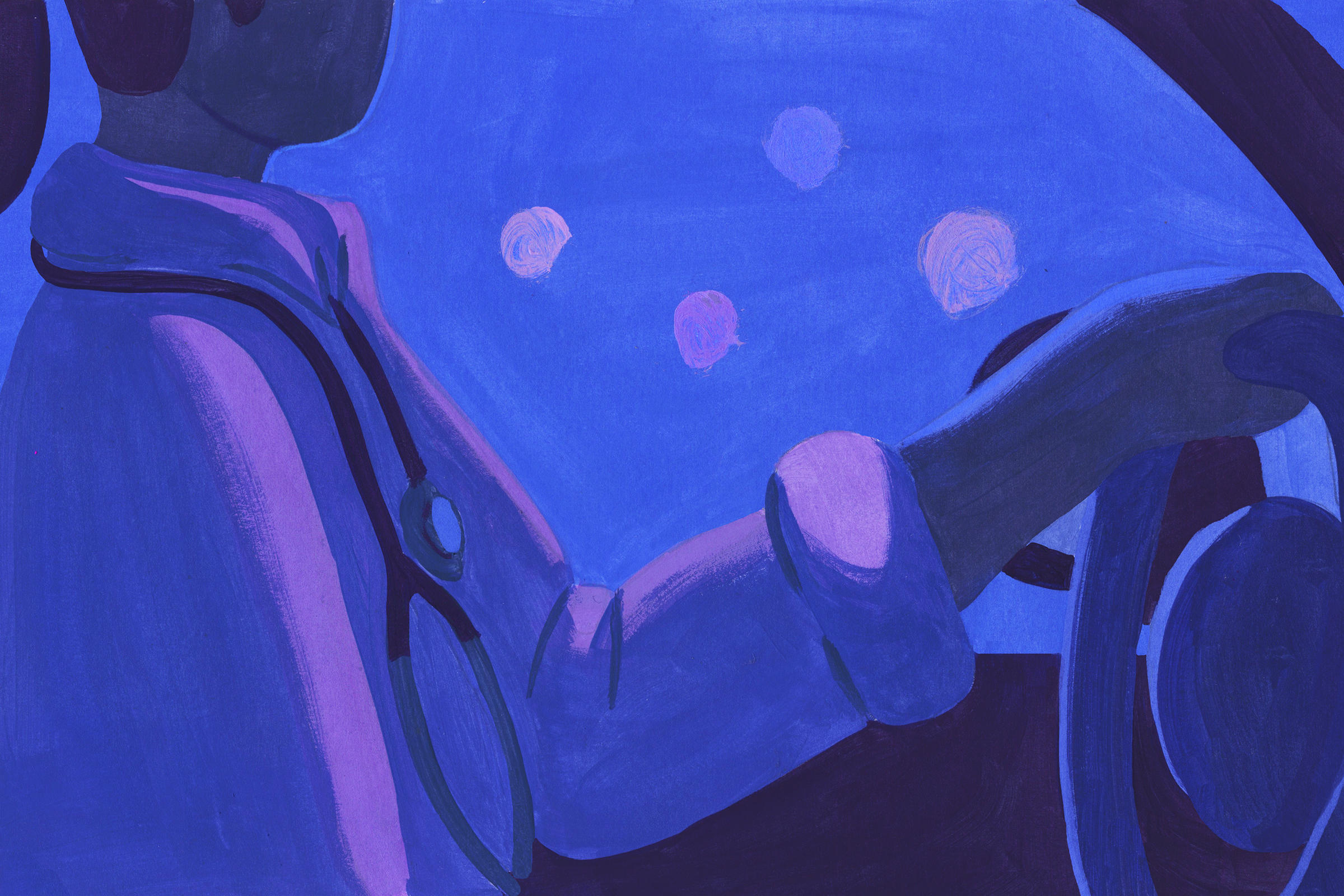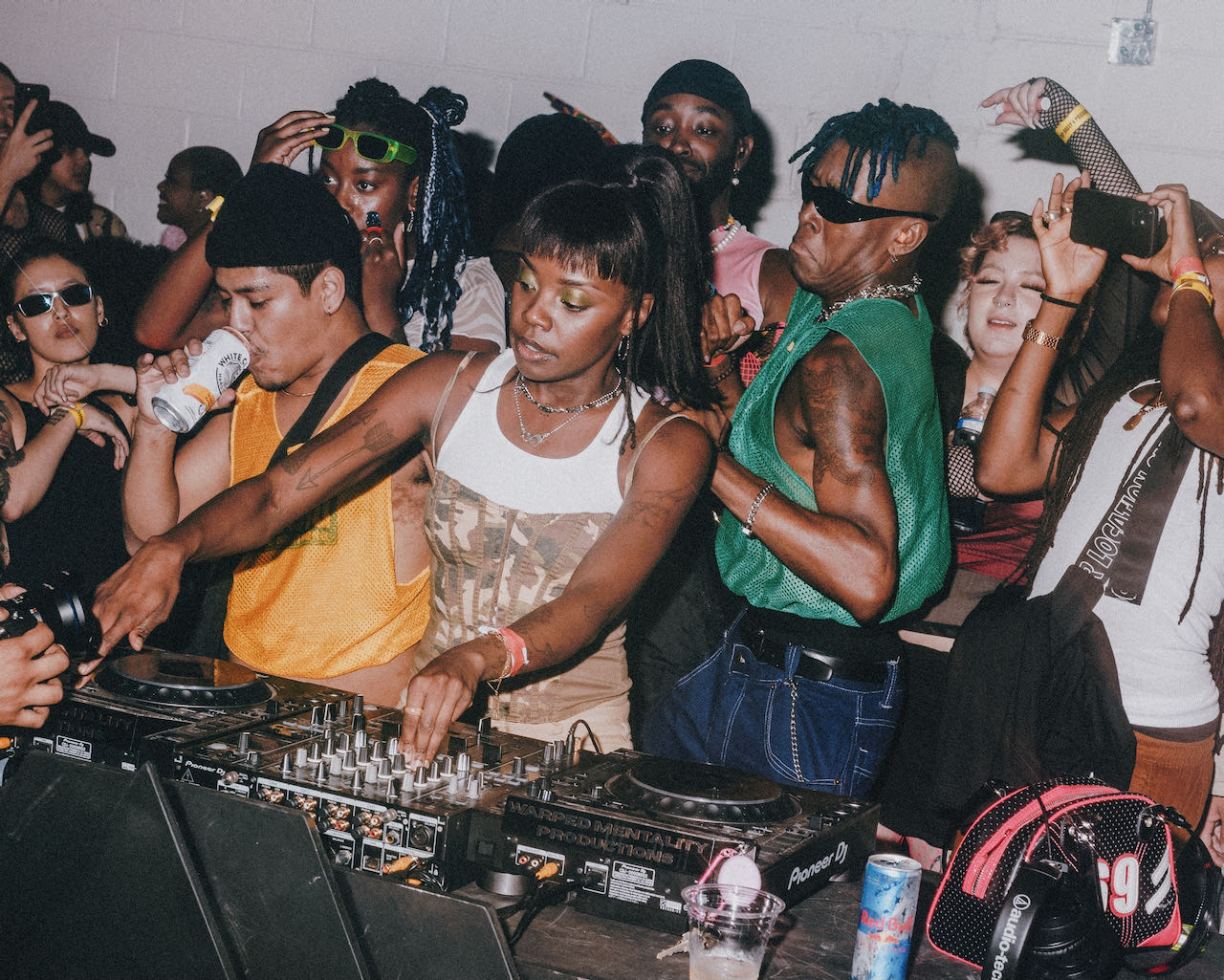
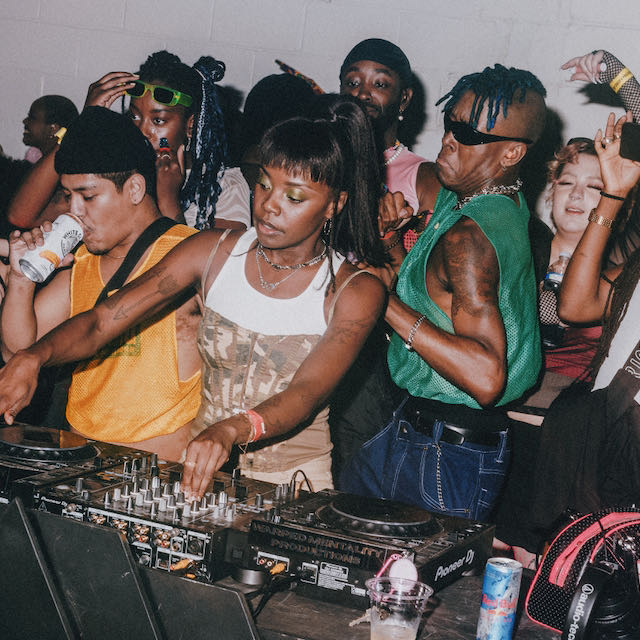
At 3:00 a.m. on a Saturday in late September, two thousand eager Toronto dance music fans are gathered in an industrial warehouse north of the city for a cavernous two-room rave. Organized by local queer and BIPOC-centred party collective Pep Rally and multimedia arts publication Lotion Magazine, the night’s theme is “candy couture,” which the youthful crowd has interpreted to mean plenty of beaded bracelets, mesh tops, thigh-high furry boots, and at least one partier wearing a rainbow LED cape, like a raver Joseph and the Amazing Technicolor Dreamcoat.
While the night’s headliners are from overseas, the rest of the lineup is a microcosm of the most innovative and exhilarating underground club music in Toronto right now. There are DJ sets from Chippy Nonstop, Karim Olen Ash, BAMBII, Marcus Visionary, Myst Milano, and a live performance by Debby Friday, whose noisy, experimental rap songs are right at home among the fast-paced techno, drum ‘n’ bass, and jungle booming out of the DIY speakers affixed to the concrete ceilings. The party continues strong until around 4:00 a.m., when the remaining dancers spill out onto the quiet streets, sharing cigarettes, calling Ubers, and saying their goodbyes until the next rave.
After two years of lockdowns, Toronto’s nightlife scene finds itself at a crossroads. On one hand, there are more people than ever who want to dance into the early morning hours—a new generation who came of age during the pandemic and are going out for the first time, and older partygoers making up for lost time. Many of this city’s acts and collectives have gotten international attention, earning media coverage and bringing in huge audiences with their online broadcasts. Every weekend this summer, whatever your taste in underground electronic music, it felt like there was a gathering—from block parties featuring multiple collectives with home-built sound systems and one-of-a-kind stages, to far-flung warehouse raves whose addresses were kept secret until attendees RSVPed, to takeovers of more mainstream institutions like Pride Toronto and Electric Island. Promise’s beloved weekly Cherry Beach parties returned after a two-year hiatus, bringing all-ages crowds and the world’s best DJs to a secluded beach. Long-running parties YES YES Y’ALL and JERK came back bigger and better than ever, joined by newcomers like New Ho Queen and Kuruza in celebrating a wide range of diasporic sounds.
At the same time, the venue crisis that predated the pandemic only intensified, particularly when it comes to spaces serving LGBTQ2+ and marginalized communities. Frustrated by this, and by increasingly expensive housing, many artists have decided to leave. Those who remained were forced to get even more creative when it came to throwing parties, all while contending with the city’s archaic noise bylaws and liquor laws. At a moment when Toronto’s nightlife scene feels primed for an explosion, it’s also increasingly stifled by profit-driven, conservative, and even outright hostile attitudes from the people holding positions of power at all levels.
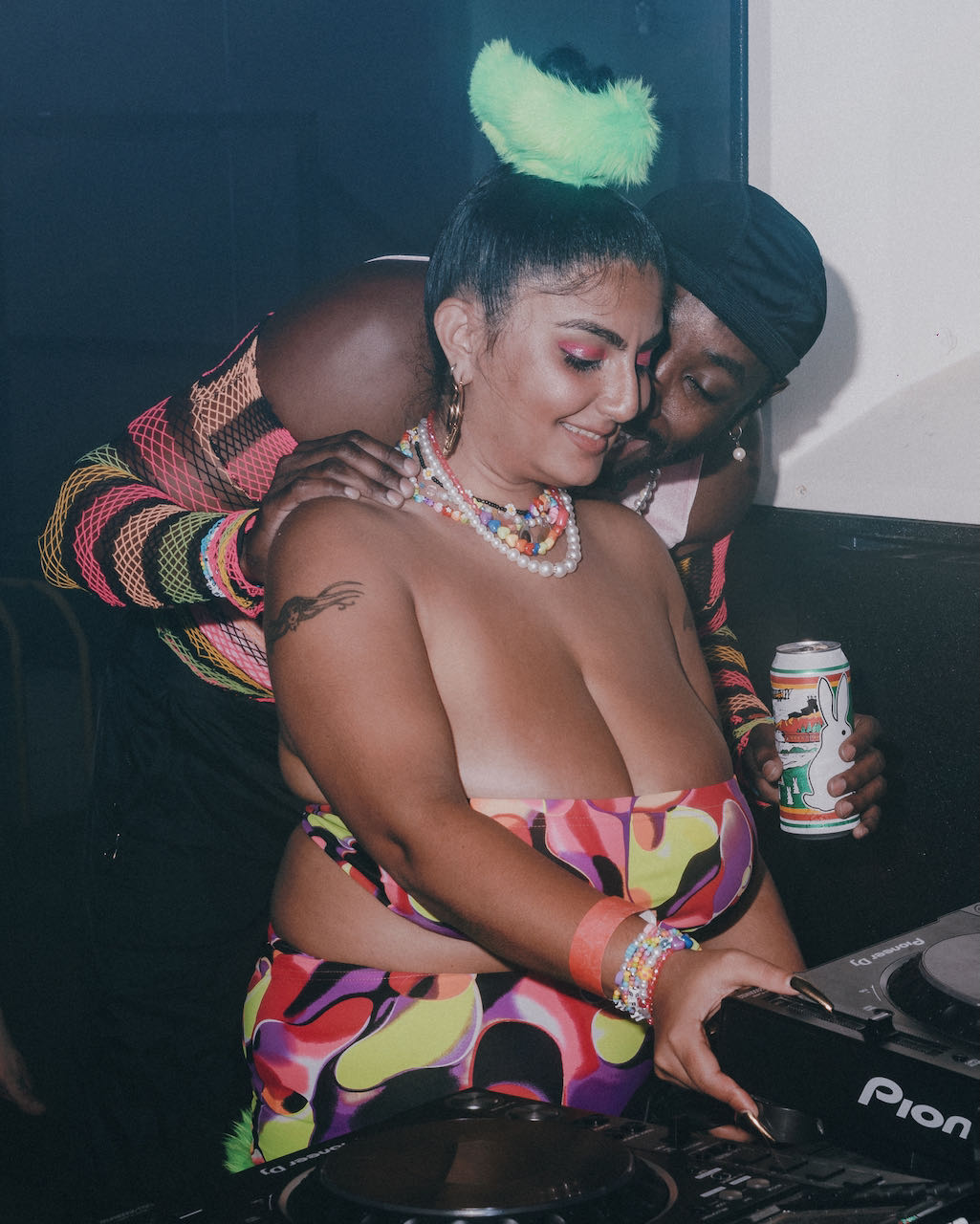
“Dance music is a part of the culture in most of Europe. They know that dance music and nightlife cultures enrich tourism and make the city better,” says DJ and producer Chippy Nonstop. “People travel to Berlin. People don’t come to Toronto for the nightlife.”
Known for her high-octane, freewheeling sets, Nonstop moved to Toronto six years ago after being deported from the United States following a visa issue. After working with other collectives, she started Pep Rally in 2018 with Toronto DJ and multi-disciplinary artist Karim Olen Ash, putting on inclusive, genre-diverse parties featuring up-and-coming and established Canadian and international talent.
When the pandemic hit and live shows stopped, Nonstop had to rely on streaming her DJ sets online to make money, while throwing outdoor raves across the city. Taking place in parks, forests, and other off-the-beaten-path locations, the parties quickly became popular, but the constant threat of police harassment loomed large. “Especially because most of our audience is people of colour, and the events were so big at that point, we were like ‘OK we can’t do this any more. We need to properly have a system and throw actual parties with safety measures,’” says Nonstop.
As restrictions on indoor events eased in 2021, Pep Rally was able to put on a handful of half-capacity parties at Annex club CODA, one of the few mid-size music venues catering to electronic music left in Toronto. But this scarcity, combined with the creative and management-imposed limitations of more traditional venues, led them to pivoting again to DIY spaces. “Chippy and I did Pep Rally because we weren’t getting booked at these big clubs; we had to create our own space,” says Olen Ash.
The duo say that, post-pandemic, the audience is hungry. “Before, a lot of our parties were just our friends and a little bit of word of mouth, now people do research,” says Nonstop. “Younger people who weren’t really going out before are figuring out who they are and what they like.”
“There’s a new generation of youth that just wants to get back to appreciating music and connecting with people,” says Olen Ash. “Everyone looks out for another at our events, everyone’s super accepting, you can literally come as you are and you are valued.”
But creating one-off spaces is expensive. A party like Pep Rally’s September warehouse edition costs approximately $30,000, with a third going to upfront fees including booking artists, hiring security, and more. Prior to the pandemic, they were able to secure funding from sponsors and brands for events like Pride, but they say those opportunities are few and far between. While both co-founders remain skeptical that Toronto nightlife can take the next step without major, government-led infrastructure changes (particularly when it comes to club licenses), in the meantime, they attribute their success to being selective about how many events they throw, prioritizing local talent, and fostering community. “Obviously as it gets bigger, there’s the little things you can’t control, but I do want people to feel comfortable,’’ says Nonstop. “I want them to say ‘Oh that was crazy, there was so many people there and no one bothered me.’”
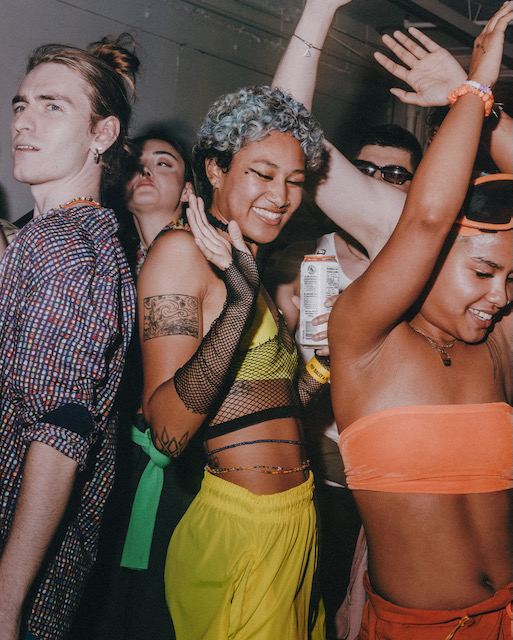
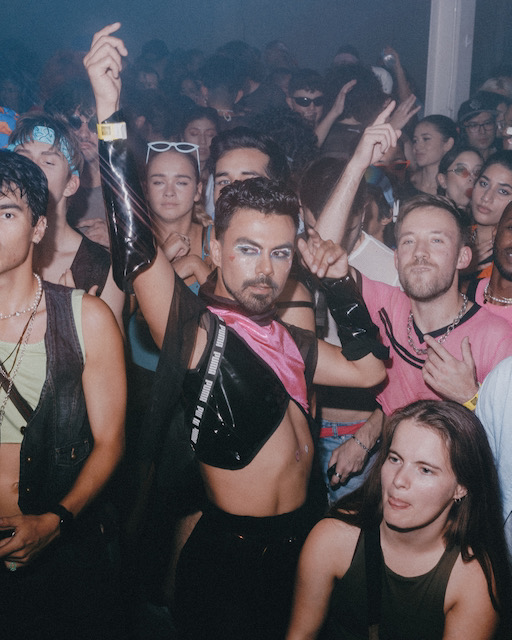
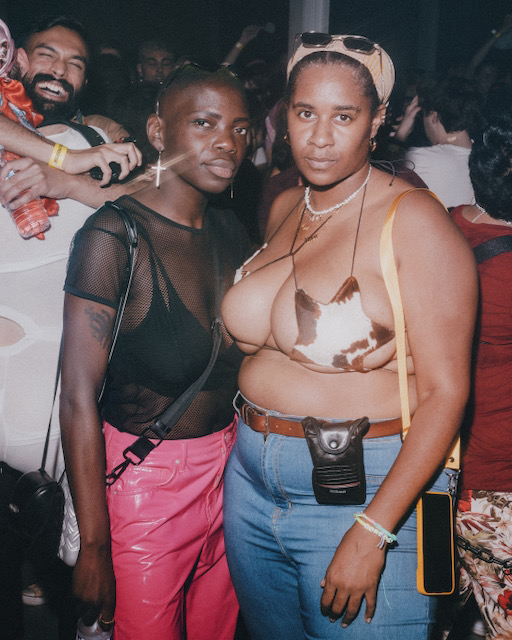
Brad Allen is familiar with creating his own space and creating community during the pandemic. Allen is one of four Toronto creatives behind Club Quarantine, the massively successful nightly queer Zoom party started at the beginning of the pandemic. The parties thrown by Allen, Casey MQ, Ceréna, and Mingus New, immediately became international viral sensations, with appearances from artists like Lady Gaga, Charli XCX, Alice Glass, Kim Petras, and more. After winding down the virtual side, Club Quarantine has transitioned to doing hybrid events, while maintaining their popular social media presence where they share everything from niche memes to anti-racism resources. Besides DJs, their live-streamed events often feature drag performers, singers, and hosts hyping up the IRL and URL audiences. “Now it’s about curating the audience we do have and creating a special event for them that doesn’t break us,” says Allen.
Allen fell in love with Toronto’s electronic scene going to events in Little Italy in the mid-2010s, and found like-minded community at since-closed west end queer bars like The Beaver and The Steady. Today, though, he’s wary of the venues who reach out to Club Quarantine offering to host events under the guise of allyship. “It’s always these spaces that are run, not to sound like a broken Twitter record, by cis straight men who are going to tell you everything that you need to hear in your preliminary meetings to get the event, and once the event happens, you realize they couldn’t give two shits about community,” he says.
This past July, Allen moved to Montreal. Today, only one of Club Quarantine’s four co-founders (Ceréna) still lives in Toronto. “Toronto has this contrast of the most conservative-that-tries-to-pass-itself-off-as-liberal government, this faux liberalism that doesn’t really exist, and then you have this underground community of people,” says Allen. “The talent is so unbelievable, and I think that’s why you’re seeing more people open up their eyes to what’s happening.”
Alex Borins is part of this new generation organizing and building nightlife in Toronto. The 22-year-old university student throws raves with her collective Warped Mentality, which focuses on “building safer, more inclusive, spaces within the rave scene.” She also runs Bakkhai Audio (the name comes from the female followers of the Greek god Dionysus and translates to “raving ones”), building DIY sound systems for her own events and others, like the September Pep Rally.
“I think the best thing about Toronto nightlife at the moment is this fresh new wave of energy and faces and crews and DJs that’s come to light after the pandemic,” she says. “There’s a spirit [audiences] have for people doing things with a more DIY ethos.”
Warped Mentality prioritizes booking queer, trans, and gender non-conforming artists, and have thrown parties everywhere from under a bridge to the meeting hall of a church. They also operate with a tiered ticketing system, reserving a number of cheaper tickets for those who might not have the financial means to pay $30 or $40 for a rave. And while the collective has only been active since summer 2021, Borins is all too aware of the hurdles in place in a city like Toronto. “We did a show with [Danish DJ and producer] Mama Snake in May and we were chatting about nightlife in Copenhagen versus nightlife in Toronto,” recalls Borins. I was explaining the idea of 2:00 a.m. last call, maybe 4:00 a.m. at a bar if you’re lucky, and she was like ‘I can’t wrap my head around that. We have after-hours in Copenhagen that will sell you beer until eight in the morning.’”
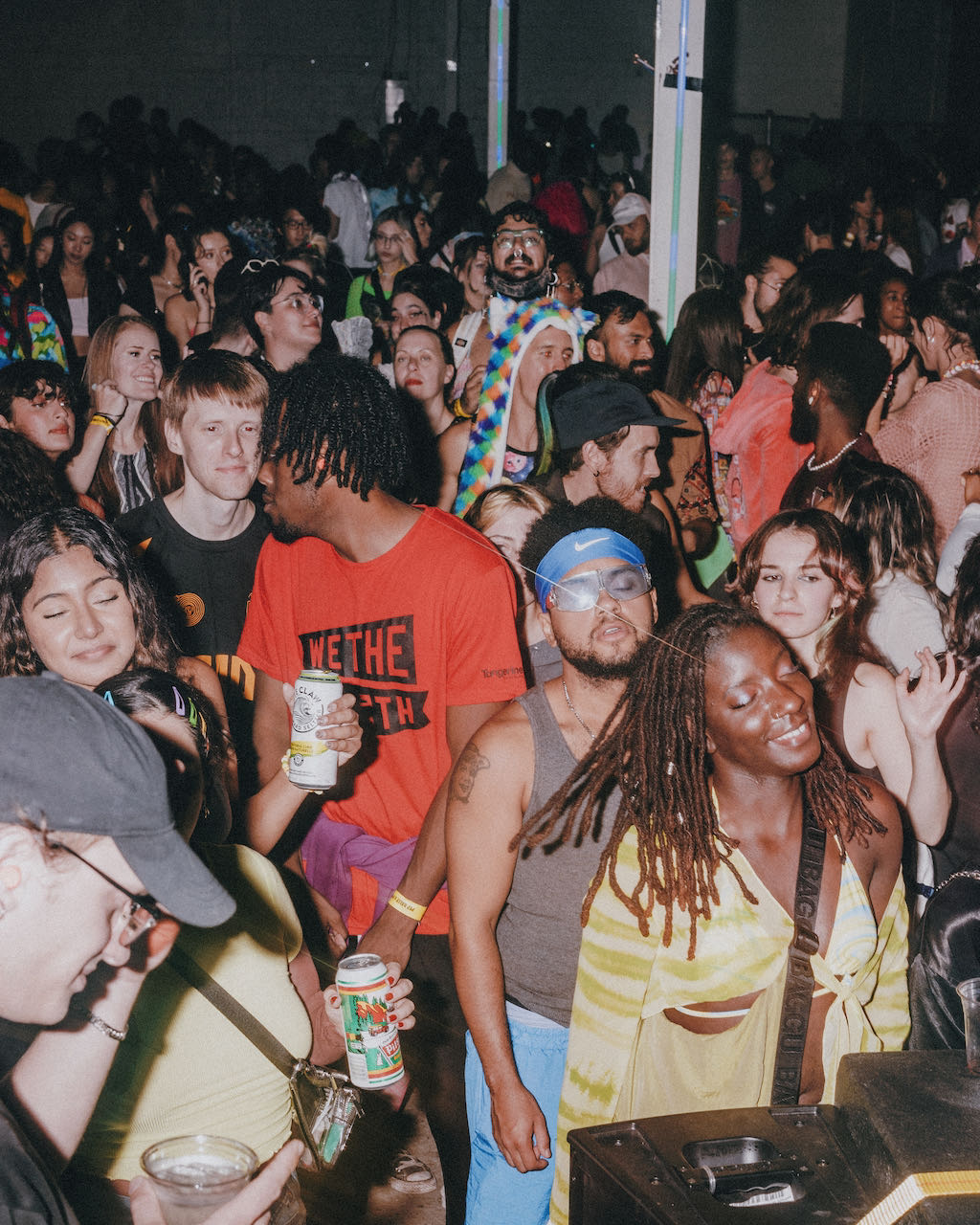
On a bitterly cold Sunday night in November, a small but enthusiastic crowd gathered at the Love Child Social Club for a Promise party. The King Street West “social hub” couldn’t be further from the DIY outdoor spaces and echoey warehouses Borins and others bring to life with sound and visuals. There’s a Smirnoff-branded swing, plenty of tacky neon slogan signs, and disco balls, flower garlands, and fake clouds hanging from the high ceilings. Headlining is Detroit’s “First Lady of Wax,” veteran DJ, producer, and label owner DJ Minx, whose Cherry Beach show in the summer was cancelled due to a thunderstorm.
Earlier that day, a mass shooting at a Colorado Springs LGBTQ2+ club called Club Q left five people dead and 25 injured, with patrons subduing the shooter themselves before police arrived. The violence wasn’t far from anyone’s minds as they entered the venue, past Promise’s always-present posters reminding people that their parties are inclusive for everybody.
Olen Ash, who closed the night after Minx, was still in shock. “Our community is super resilient and we will get through this like we’ve gotten through everything else,” he says. “I hope this is just more fuel to lead to change and more acceptance for our community, because we deserve equality like everybody else.”
Out on the dancefloor, Minx’s two-hour set of soulful and sultry house and techno quickly got the revelers shedding their winter coats and dancing on-top of the elevated booths. Friends greeted each other enthusiastically, an undeniable feeling of catharsis in the air. In a familiar bit of Toronto irony, the Promise party will be one of the last at this venue. The space is scheduled to be closed permanently at the end of the month and turned into a future Metrolinx subway station.
